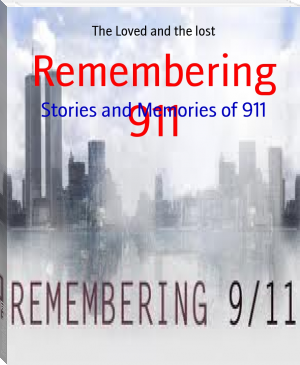The Story of My Life - Helen Keller (top rated ebook readers .txt) 📗

- Author: Helen Keller
- Performer: 0140439153
Book online «The Story of My Life - Helen Keller (top rated ebook readers .txt) 📗». Author Helen Keller
I sometimes wonder if the hand is not more sensitive to the beauties of sculpture than the eye. I should think the wonderful rhythmical flow of lines and curves could be more subtly felt than seen. Be this as it may, I know that I can feel the heart-throbs of the ancient Greeks in their marble gods and goddesses.
Another pleasure, which comes more rarely than the others, is going to the theatre. I enjoy having a play described to me while it is being acted on the stage far more than reading it, because then it seems as if I were living in the midst of stirring events. It has been my privilege to meet a few great actors and actresses who have the power of so bewitching you that you forget time and place and live again in the romantic past. I have been permitted to touch the face and costume of Miss Ellen Terry as she impersonated our ideal of a queen; and there was about her that divinity that hedges sublimest woe. Beside her stood Sir Henry Irving, wearing the symbols of kingship; and there was majesty of intellect in his every gesture and attitude and the royalty that subdues and overcomes in every line of his sensitive face. In the king’s face, which he wore as a mask, there was a remoteness and inaccessibility of grief which I shall never forget.
I also know Mr. Jefferson. I am proud to count him among my friends. I go to see him whenever I happen to be where he is acting. The first time I saw him act was while at school in New York. He played “Rip Van Winkle.” I had often read the story, but I had never felt the charm of Rip’s slow, quaint, kind ways as I did in the play. Mr. Jefferson’s, beautiful, pathetic representation quite carried me away with delight. I have a picture of old Rip in my fingers which they will never lose.
After the play Miss Sullivan took me to see him behind the scenes, and I felt of his curious garb and his flowing hair and beard. Mr. Jefferson let me touch his face so that I could imagine how he looked on waking from that strange sleep of twenty years, and he showed me how poor old Rip staggered to his feet.
I have also seen him in “The Rivals.” Once while I was calling on him in Boston he acted the most striking parts of “The Rivals”
for me. The reception-room where we sat served for a stage. He and his son seated themselves at the big table, and Bob Acres wrote his challenge. I followed all his movements with my hands, and caught the drollery of his blunders and gestures in a way that would have been impossible had it all been spelled to me.
Then they rose to fight the duel, and I followed the swift thrusts and parries of the swords and the waverings of poor Bob as his courage oozed out at his finger ends. Then the great actor gave his coat a hitch and his mouth a twitch, and in an instant I was in the village of Falling Water and felt Schneider’s shaggy head against my knee. Mr. Jefferson recited the best dialogues of “Rip Van Winkle,” in which the tear came close upon the smile. He asked me to indicate as far as I could the gestures and action that should go with the lines. Of course, I have no sense whatever of dramatic action, and could make only random guesses; but with masterful art he suited the action to the word. The sigh of Rip as he murmurs, “Is a man so soon forgotten when he is gone?” the dismay with which he searches for dog and gun after his long sleep, and his comical irresolution over signing the contract with Derrick—all these seem to be right out of life itself; that is, the ideal life, where things happen as we think they should.
I remember well the first time I went to the theatre. It was twelve years ago. Elsie Leslie, the little actress, was in Boston, and Miss Sullivan took me to see her in “The Prince and the Pauper.” I shall never forget the ripple of alternating joy and woe that ran through that beautiful little play, or the wonderful child who acted it. After the play I was permitted to go behind the scenes and meet her in her royal costume. It would have been hard to find a lovelier or more lovable child than Elsie, as she stood with a cloud of golden hair floating over her shoulders, smiling brightly, showing no signs of shyness or fatigue, though she had been playing to an immense audience. I was only just learning to speak, and had previously repeated her name until I could say it perfectly. Imagine my delight when she understood the few words I spoke to her and without hesitation stretched her hand to greet me.
Is it not true, then, that my life with all its limitations touches at many points the life of the World Beautiful?
Everything has its wonders, even darkness and silence, and I learn, whatever state I may be in, therein to be content.
Sometimes, it is true, a sense of isolation enfolds me like a cold mist as I sit alone and wait at life’s shut gate. Beyond there is light, and music, and sweet companionship; but I may not enter. Fate, silent, pitiless, bars the way. Fain would I question his imperious decree, for my heart is still undisciplined and passionate; but my tongue will not utter the bitter, futile words that rise to my lips, and they fall back into my heart like unshed tears. Silence sits immense upon my soul. Then comes hope with a smile and whispers, “There is joy in self-forgetfulness.” So I try to make the light in others’ eyes my sun, the music in others’ ears my symphony, the smile on others’ lips my happiness.
Would that I could enrich this sketch with the names of all those who have ministered to my happiness! Some of them would be found written in our literature and dear to the hearts of many, while others would be wholly unknown to most of my readers. But their influence, though it escapes fame, shall live immortal in the lives that have been sweetened and ennobled by it. Those are red-letter days in our lives when we meet people who thrill us like a fine poem, people whose handshake is brimful of unspoken sympathy, and whose sweet, rich natures impart to our eager, impatient spirits a wonderful restfulness which, in its essence, is divine. The perplexities, irritations and worries that have absorbed us pass like unpleasant dreams, and we wake to see with new eyes and hear with new ears the beauty and harmony of God’s real world. The solemn nothings that fill our everyday life blossom suddenly into bright possibilities. In a word, while such friends are near us we feel that all is well. Perhaps we never saw them before, and they may never cross our life’s path again; but the influence of their calm, mellow natures is a libation poured upon our discontent, and we feel its healing touch, as the ocean feels the mountain stream freshening its brine.
I have often been asked, “Do not people bore you?” I do not understand quite what that means. I suppose the calls of the stupid and curious, especially of newspaper reporters, are always inopportune. I also dislike people who try to talk down to my understanding. They are like people who when walking with you try to shorten their steps to suit yours; the hypocrisy in both cases is equally exasperating.
The hands of those I meet are dumbly eloquent to me. The touch of some hands is an impertinence. I have met people so empty of joy, that when I clasped their frosty finger tips, it seemed as if I were shaking hands with a northeast storm. Others there are whose hands have sunbeams in them, so that their grasp warms my heart.
It may be only the clinging touch of a child’s hand; but there is as much potential sunshine in it for me as there is in a loving glance for others. A hearty handshake or a friendly letter gives me genuine pleasure.
I have many far-off friends whom I have never seen. Indeed they are so many that I have often been unable to reply to their letters; but I wish to say here that I am always grateful for their kind words, however insufficiently I acknowledge them.
I count it one of the sweetest privileges of my life to have known and conversed with many men of genius. Only those who knew Bishop Brooks can appreciate the joy his friendship was to those who possessed it. As a child I loved to sit on his knee and clasp his great hand with one of mine, while Miss Sullivan spelled into the other his beautiful words about God and the spiritual world.
I heard him with a child’s wonder and delight. My spirit could not reach up to his, but he gave me a real sense of joy in life, and I never left him without carrying away a fine thought that grew in beauty and depth of meaning as I grew. Once, when I was puzzled to know why there were so many religions, he said: “There is one universal religion, Helen—the religion of love. Love your Heavenly Father with your whole heart and soul, love every child of God as much as ever you can, and remember that the possibilities of good are greater than the possibilities of evil; and you have the key to Heaven.” And his life was a happy illustration of this great truth. In his noble soul love and widest knowledge were blended with faith that had become insight.
He saw
God in all that liberates and lifts, In all that humbles, sweetens and consoles.
Bishop Brooks taught me no special creed or dogma; but he impressed upon my mind two great ideas—the fatherhood of God and the brotherhood of man, and made me feel that these truths underlie all creeds and forms of worship. God is love, God is our Father, we are His children; therefore the darkest clouds will break and though right be worsted, wrong shall not triumph.
I am too happy in this world to think much about the future, except to remember that I have cherished friends awaiting me there in God’s beautiful Somewhere. In spite of the lapse of years, they seem so close to me that I should not think it strange if at any moment they should clasp my hand and speak words of endearment as they used to before they went away.
Since Bishop Brooks died I have read the Bible through; also some philosophical works on religion, among them Swedenborg’s “Heaven and Hell” and Drummond’s “Ascent of Man,” and I have found no creed or system more soul-satisfying than Bishop Brooks’s creed of love. I knew Mr. Henry Drummond, and the memory of his strong, warm hand-clasp is like a benediction. He was the most sympathetic of companions. He knew so much and was so genial that it was impossible to feel dull in his presence.
I remember well the first time I saw Dr. Oliver Wendell Holmes.
He had invited Miss Sullivan and me to call on him one Sunday afternoon. It was early





Comments (0)